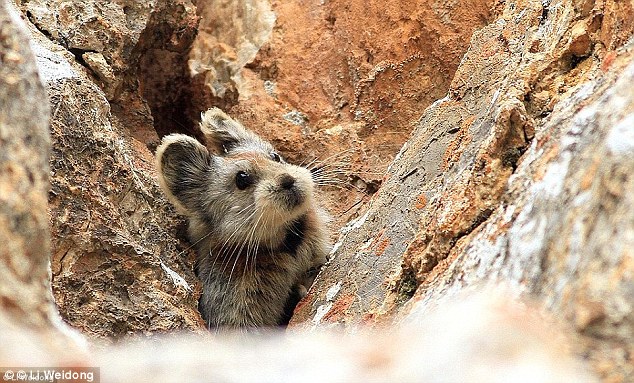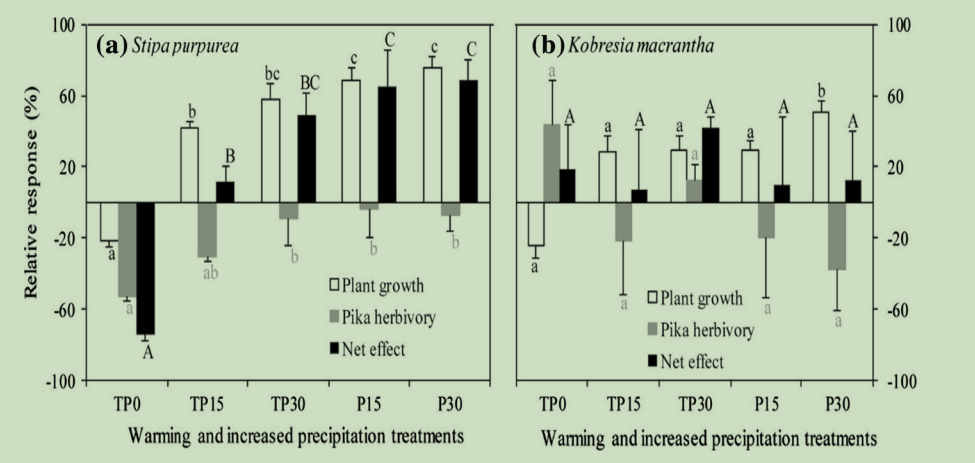| News |
| Latest news | |
| Int’l Cooperation activities | |
| Events & Announcement | |
| Recent Activities |
| Location: Home>News>Recent Activities |
| Study reveals pikas’ impact on Tibetan grassland degradation |
Increased precipitation can alleviate grassland degradation in Tibet which is worsened by pika grazing and climate warming, according to a recent research led by Prof. LUO Tianxiang from the Institute of Tibetan Plateau Research, Chinese Academy of Sciences (ITPCAS). The study published in Plant Ecology improved our understanding on what factors are responsible for grassland degradation in the context of global warming.
Plateau pikas Tibetan Plateau is home to the highest and largest grasslands and meadows in the world. The whole area has experienced severe grassland degradation over the last 30 years, in which, according to previous studies, overgrazing, climate change and the pika activity all have a role to play. Plateau pika is a keystone species found on the Tibetan grasslands. As a native species in alpine ecosystems, plateau pikas prefer to live in warm and dry habitats. Small and furry as they are, pikas are identified as a pest responsible for the land degradation. It is already known that when plants grow poorly due to overgrazing, pika populations will grow, thus worsening the grassland degradation. However, few studies report how pikas respond to climate change and what are the impacts of the other two factors on plant growth. Through a 2-year experiment in Namtso of Tibet, Luo’s team discovered that “the effect of pika grazing on Stipa purpurea is amplified by warming but alleviated by increased precipitation in an alpine grassland.” (Haixia Wei et al, 2019) This finding has clarified the role of pika in grassland degradation, and thus provides a scientific basis for better adaptation to future climate change. (Tie Xinyu & Xia Cuihui)
Net effect of warming and increased precipitation and pika hervivory on plant growth Zhao, J., Tian, L., Wei, H., Zhang, T., Bai, Y., Li, R., & Tang, Y. (2019). Impact of plateau pika (Ochotona curzoniae) burrowing-induced microtopography on ecosystem respiration of the alpine meadow and steppe on the Tibetan plateau. Plant and Soil, 1-14. |


